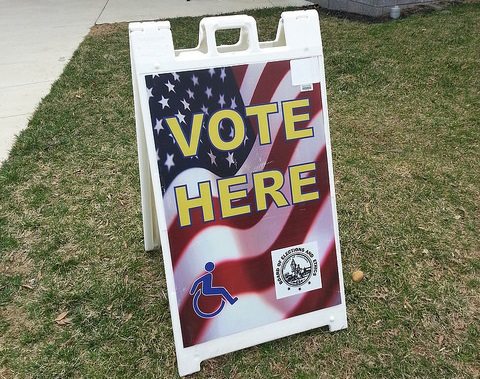
November 3, 2014; Pacific Standard
Sign up for our free newsletters
Subscribe to NPQ's newsletters to have our top stories delivered directly to your inbox.
By signing up, you agree to our privacy policy and terms of use, and to receive messages from NPQ and our partners.
Plenty of important issues will be on the agenda of the next Congress now that the Republicans have swamped the Democrats. Here’s a list of some of the issues that might be of interest to nonprofits—beyond the nonprofit-centric issues of the charitable tax deduction.
- Finally getting around to immigration reform: With the likes of Iowa’s Steve King in the Republican caucus, there will be plenty of pushback against the Republican leadership, which knows it has to do something about immigration reform before 2016 or else stand by and watch the entire Latino electorate vote for the Democratic presidential nominee. Expect some significant pressure for movement on immigration reform, even if the package is much less than immigration advocates might hope for—a mix of small reforms, basically, potentially to include provisions that would allow some current residents to apply for legal residency, incentives for immigrants with STEM educational skills, stronger employer background checks, and something along the lines of the DREAM Act made to sound different from what President Obama supported. Perhaps, however, the prospect of partial solutions from Congress might prompt the president to implement the executive orders on immigration reform that he has so far been unwilling to implement.
- No good news on climate change: When it comes to pandering to big coal, finding positives in fracking, and looking toward the Keystone XL pipeline, Democrats don’t necessarily stand as a bulwark to thwart the Republicans’ ambition to change the nation’s trajectory, tepid as it is, on climate change. This is an issue that will require nonprofits in the environmental movement to be more mobilized than ever.
- Fixing federal student aid programs: The indebtedness of millions of college graduates is an issue that bedevils students and their families as they emerge from higher education with never-ending mountains of debt. Proposals to consolidate or streamline federal college loans and grants have been floated by Rep. John Kline (R-MN), Sen. Lamar Alexander (R-TN), Sen. Michael Bennett (D-CO), and outgoing Sen. Tom Harkin (D-IA), but no pending legislation of importance has yet been introduced.
- Regulating for-profit colleges: Just last week, the U.S. Department of Education issued regulations to require for-profit colleges to improve outcomes for their graduates—and counterbalance their often very large debts after graduating from these institutions—or face the prospect of losing access to federal aid. Democrats have been critics of for-profit colleges, but a major Republican victory could lead to efforts to overturn the Education rule.
- Raising the minimum wage: President Obama hasn’t made headway on raising the minimum wage during the first six years of his two terms in office, but raising the federal minimum wage from its paltry current level of $7.25 an hour (set half a decade ago) may make headway with the likely approval of minimum wage ballot initiatives in several states, including those where Republicans are likely to hold or win Senate seats.
- The return of earmarks: If you thought they were dead and buried, they aren’t. Former Republican Rep. James Walsh, now a lobbyist, predicts that the prospect of a highway-funding bill would come with the revival of earmarks. If anything, earmarks would boost the lobbying industry to new heights.
- Failing to repeal the Affordable Care Act: Here’s the big secret: Other than some of the extreme elements of the Republican Party, there is no appetite for repealing the Affordable Care Act among Republicans, especially given that they have nothing to suggest in its place. As for Ted Cruz, Steve King, and others? They’re on the sidelines on this issue, scoring political points with politically extreme elements, but unable to turn back the clock on this historic social reform legislation.
The issue that we expect no movement on no matter which party takes Congress or who resides in the White House is poverty. The issue has gotten some discussion lately, particularly due to the strategy described by Rep. Paul Ryan, but there’s no evidence of a groundswell from either party to take on poverty.
“I was talking with a friend recently about the fact that Lyndon Johnson had a ‘war’ on poverty,” said Ted Strickland, the former governor of Ohio who is now president of the Center for American Progress Action Fund. “I really can’t imagine politicians being willing to talk about a ‘war’ on poverty today.” Strickland’s observation isn’t just correct because of the possibility of a gridlocked 2015 Congress; in both parties, despite the societal evidence, there’s no appetite to talk about solutions to the challenges of the poor, much less solutions that the poor help craft, own, and deliver.—Rick Cohen












